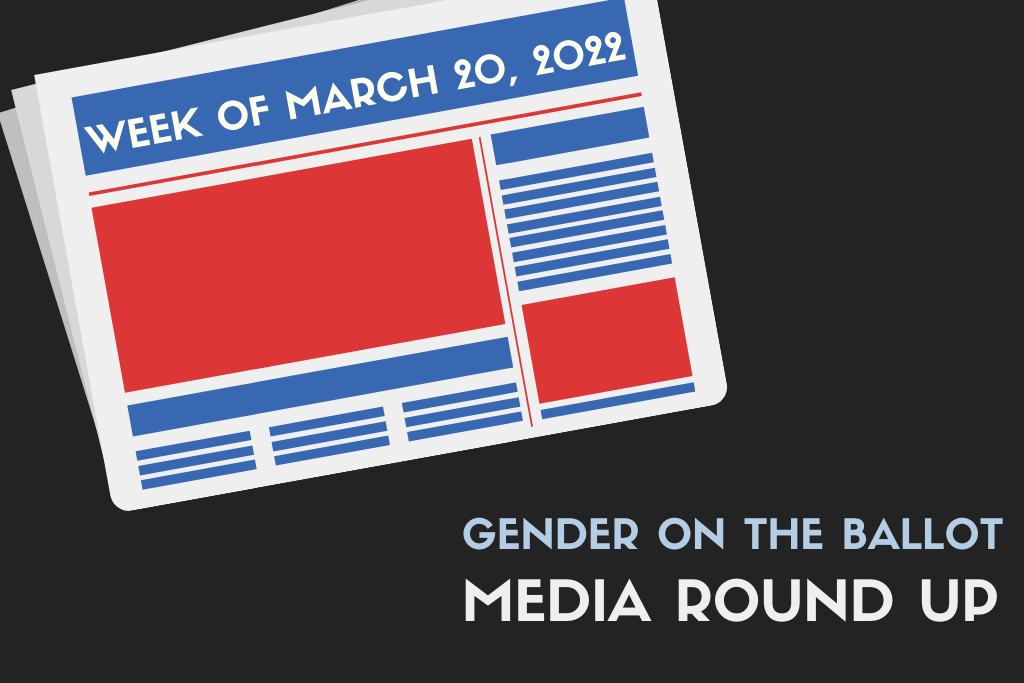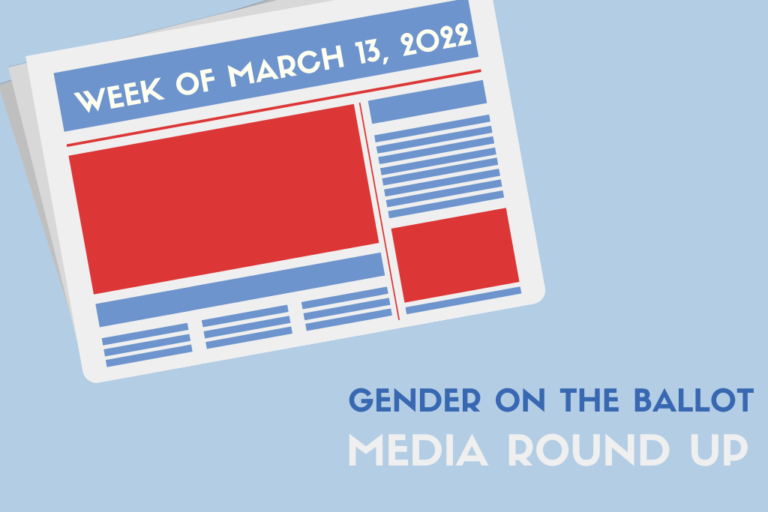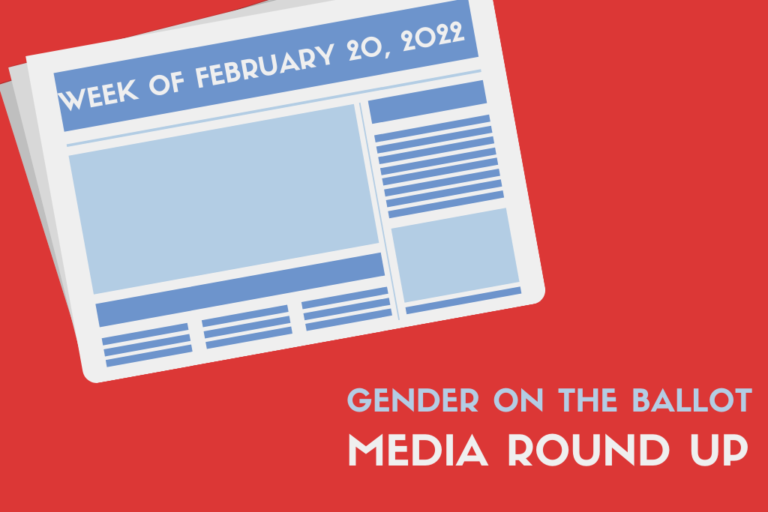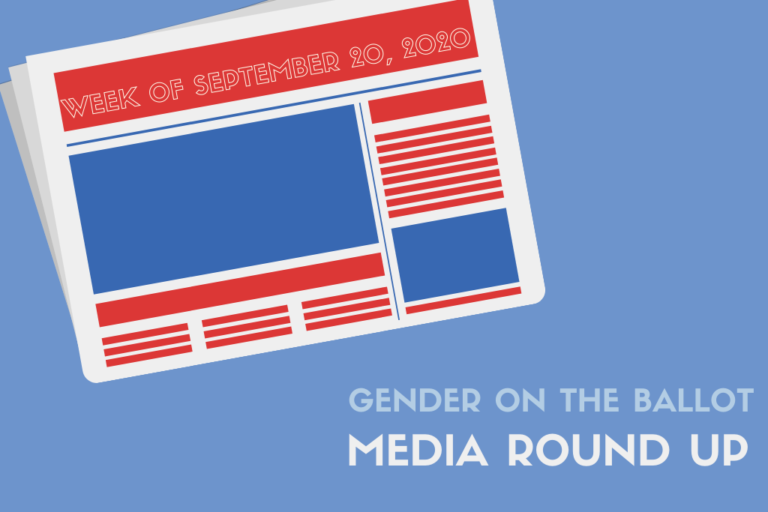Happy Friday! Welcome to our Media Round Up. Each week we’re collecting and sharing…
Media Round-Up: Week of March 20th

Happy Friday! Welcome to our Media Round Up. Each week we’re collecting and sharing our favorite gender + politics stories. Here’s what caught our eye this week:
A woman created the public defender role. Jackson could bring that experience to the high court.
Julianne McShane, Washington Post
If confirmed to the Supreme Court, Judge Ketanji Brown Jackson will be the first Supreme Court Justice with public defense experience. The possibility of adding public defender experience to the Supreme Court for the first time highlights the role’s long-forgotten origins. The idea of having public defense began in 1893 with Clara Shortridge Foltz, the first female lawyer on the West Coast. Foltz gave an impassioned 30-minute speech at the Chicago World’s fair emphasizing that forcing accused parties to pay for their own counsel was unconstitutional. Seventeen years after Foltz’s speech, the country’s first public defender office opened.
Read the full story here.
Cities and towns across the state are electing female mayors at record rates.
Harrison Cann, City and State Pennsylvania
Across the state, cities and towns in Pennsylvania are electing women at record rates. Scranton, Harrisburg, Upper Darby, and Gettysburg are some of the many cities and towns that are giving women the head seat at the table. Not only are women making a strong impact on municipalities in the state, but women of color are making up a significant portion of the new mayors. This trend began around at the end of the last decade, and looks like it will continue into this one.
Read the full story here.
How the Seneca Falls Convention Kicked Off the U.S. Women’s Rights Movement
Patty Rasmussen, How Stuff Works
The Seneca Falls Convention held in July 1848 was the first women’s rights convention held in the United States. The convention was attended by over two hundred women and would later be referenced as the starting point for the women’s rights movement in the United States. Some experts have wondered why the Seneca Falls Convention wasn’t held in a major city in the U.S.: Philadelphia, New York City or Washington, D.C. Janine Waller, chief of interpretation, education and outreach at the Women’s Rights National Historical Park in Seneca Falls explains why the five organizers of the convention chose Seneca Falls for this key moment in U.S. history.
Read the full story here.
PERSPECTIVE: AS WOMEN HAVE ADVANCED IN THE WORKPLACE, NOT ALL HAVE GAINED EQUALLY
Aine Doris, UVA Today
In a recent Q&A, Allison Elias, an assistant professor of business administration at the University of Virginia’s Darden School of Business, focuses on whether “all women benefit from efforts to advance gender equity in the workplace.” Elias’s book The Rise of Corporate Feminism: Women in the American Office, 1960–1990, will debut soon.
Read the full story here.
The Black Ballot: Debunking The Myth That Black Women Candidates Are Unelectable
Anoa Changa, NewsOne
After the 2020 election season, Black women were hailed as the “saving grace” of democracy due to their high voter turnout; however, Black women do not receive the same support as other demographic groups when it comes to leadership within American politics. Often times, Black candidates do not receive the same funding, institutional support, or infrastructure as their white peers. Research shows that the difference in funding and other support is partially due to the fear that Black women won’t win their races and the support would be going to “waste.”
Read the full story here.






